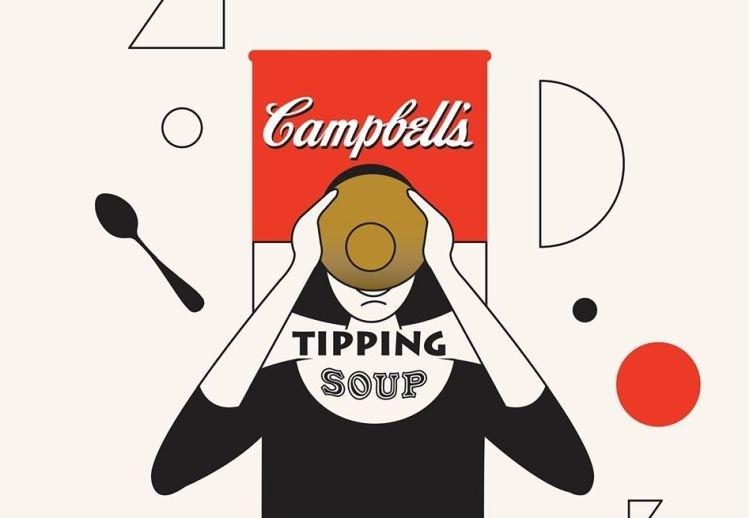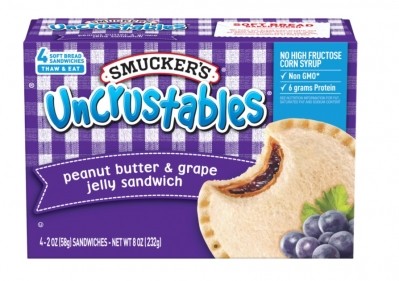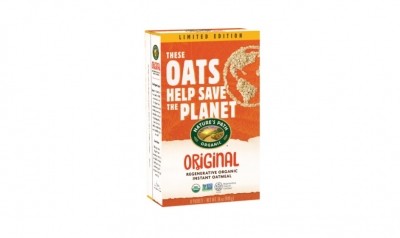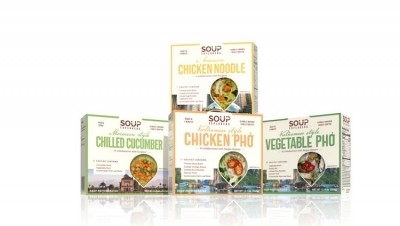Coronavirus will temporarily boost consumption of shelf-stable and frozen foods, says Bernstein

“This will likely benefit companies such as Campbell Soup in canned soup, Conagra Brands in frozen, General Mills and Kellogg in cereal, Mondelez International and Kellogg in crackers, JM Smucker in peanut butter and jams and jellies, and Kraft Heinz in mac & cheese in the near term.
“However, we expect such growth to be temporary in nature and do not expect any material impact on US food companies' sales on a full-year basis at this stage. Meanwhile, food companies with significant exposures to the foodservice/QSR channel could face near-term headwinds in the event of a large-scale outbreak in the US.
“Within our coverage, Beyond Meat, Tyson Foods, and McCormick are the most exposed to the foodservice channel, although sales growth could bounce back after the initial period of heightened concerns.
Online grocery shopping
Coronavirus will also boost online grocery shopping, Bernstein predicted: "Meanwhile, while people may be shopping for groceries less frequently in store, the coronavirus outbreak could prompt more people to start shopping online, which could help mitigate some of the declines in the brick & mortar channel."
(Its comments came as Uber bosses predicted a rise in demand for Uber Eats and Instacart told Reuters it had brought forward the launch of its door-step grocery drop-off service, which gives customers the option to have groceries left at their doorstep at a designated time, instead of being hand-delivered.)
According to Nielsen data, sales of fresh fruit are down, but several categories have seen a sharp uptick in sales in the week ending February 29, 2020, vs the same period in 2019, including:
- Oatmilk: +322% YoY week ending Feb 29 (in the previous week to Feb 22, sales were up 305.5% YoY)
- Dried beans: +36.9% YoY week ending Feb 29 (in the previous week, sales were up 10.1% YoY)
- Water: +11.3% YoY week ending Feb 29 (in the previous week, sales were up 5.1% YoY)
- Canned meat: +31.8% YoY week ending Feb 29 (in the previous week, sales were up 9.7% YoY)
- Powdered milk products: +84.4% YoY week ending Feb 29 (in the previous week, sales were up 5% YoY)
'The US food sector is no longer as defensive as before'
As for longer-term implications of COVID-19, said Bernstein, “Investors expect the coronavirus outbreak to be a ~1% headwind to global real GDP on average. In case of an economic slowdown on the back of a larger scale coronavirus outbreak at the global level, history would suggest that consumer staples stocks tend to outperform, especially given today's low yield environment.
“However, we caution investors that the US food sector is no longer as defensive as before given weaker fundamentals, higher levels of leverage, and increased earnings volatility.”
McCormick: "We estimate that McCormick has ~7.5% exposure to China, the majority of which is in the QSR channel, which has likely seen significantly declined traffic as consumers cut back on food-away-from-home consumption. The outbreak has also affected McCormick's in-country manufacturing, with its Shanghai and Guangzhou plants having resumed partial operations while its Wuhan plant is still closed."
Tyson Foods: "While its direct exposure to China (including exports and a small in-country presence) was only ~3% in 2019, the coronavirus outbreak in China has led to temporary port closures, transportation blockages, and domestic consumption declines. These could pose near-term headwinds for Tyson as reduced exports to China could increase protein supply in the US and weigh on domestic protein prices. A more prolonged disruption could also risk delaying and/or reducing the magnitude of the upside that Tyson is able to realize from the African Swine Fever-led global protein supply shortage."
Campbell Soup: Pantry loading
Campbell Soup CEO Mark Clouse did not reference coronavirus during the firm’s earnings call this week, but told CNBC that the company was boosting production in some areas (canned soups, snacks and Prego pasta sauces) in anticipation of pantry-loading.
"We made the decision last week to up production in certain areas where we're using a little bit the analogy of weather or natural disasters.”
In an interview with Reuters, he noted that some retailers had begun stepping up orders, adding: “Only about 10% of our total ingredients come from outside of North America, with China under 2%.”
“From a business preparedness standpoint, we’ve established an internal task force that has activated our pandemic preparedness plan with a focus on our customers, associates and supply chain. We generally believe that we have limited supply chain exposure in China as the majority of the products we source is domestic.”
Rodney McMullen, CEO, Kroger
Costco: A big uptick in sales
His comments came as Costco chief financial officer Richard Galanti told analysts during the firm’s Q2, 2020 earnings call yesterday that, “Our February results benefited by last week's big uptick in sales, the fourth week of last month mostly we believe related to concerns around the coronavirus. This positively impacted amongst total and comparable sales numbers by approximately three percentage points.”
He added: “Members are turning to us for a variety of items associated with preparing for and dealing with a virus, such as shelf stable dry grocery items, cleaning supplies, Clorox and Bleach, water, paper goods, hand sanitizers, sanitizing wipes disinfectants, health and beauty aids and even items like water filtration and food storage items.”
The supply of high intensity (non nutritive) sweeteners from China could be impacted if coronavirus continues to spread, Coca-Cola has warned.
In its annual report for the year ended Dec 31, 2019, Coca-Cola noted: “Our supply chain for non-nutritive sweeteners and certain other ingredients for our products includes suppliers in China. As a result of the outbreak of the novel coronavirus COVID-19, beginning in January 2020, our suppliers in China have experienced some delays in the production and export of these ingredients.
“We have initiated contingency supply plans and do not foresee a short-term impact due to these delays. However, we may see tighter supplies of some of these ingredients in the longer term should production or export operations in China deteriorate.”













